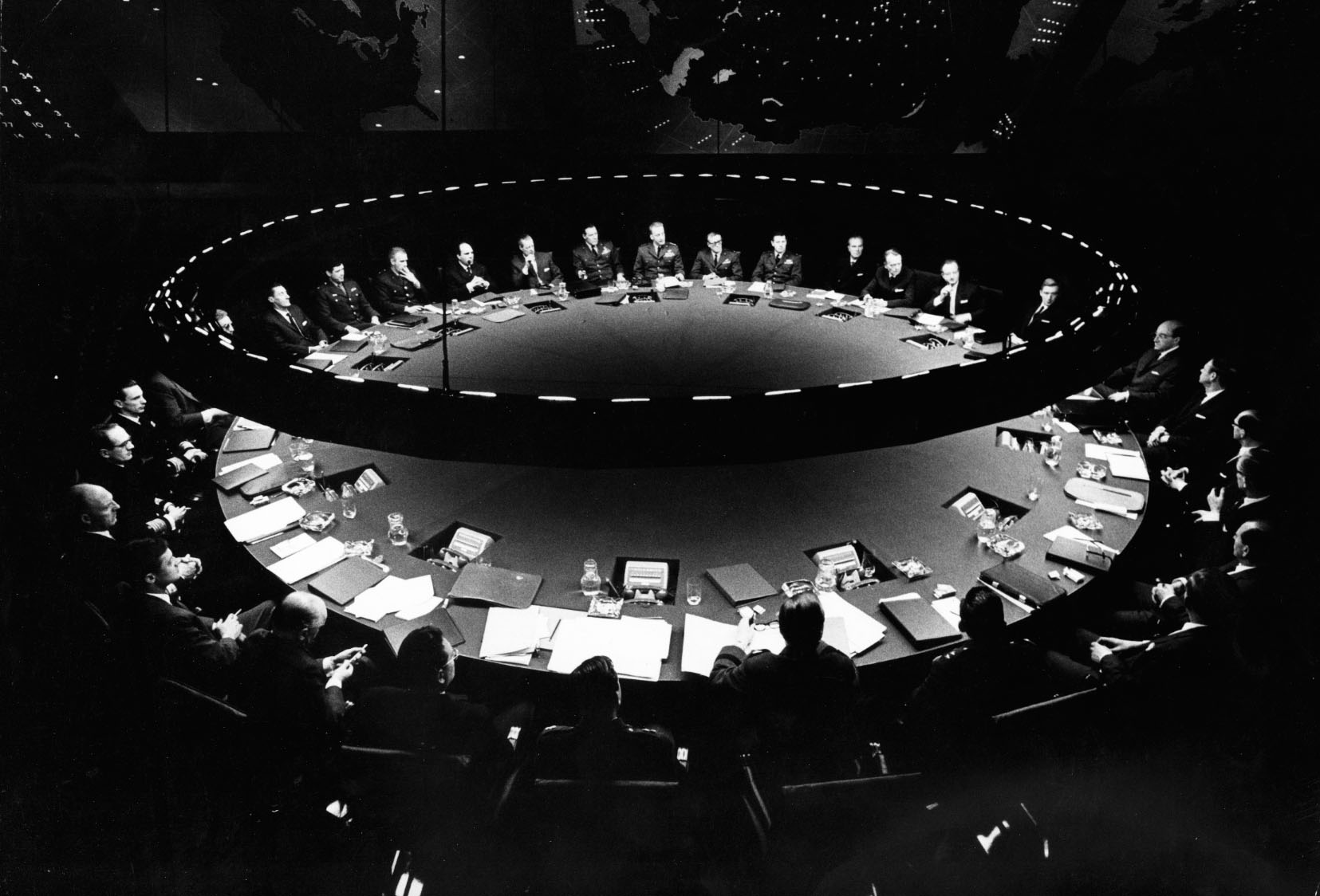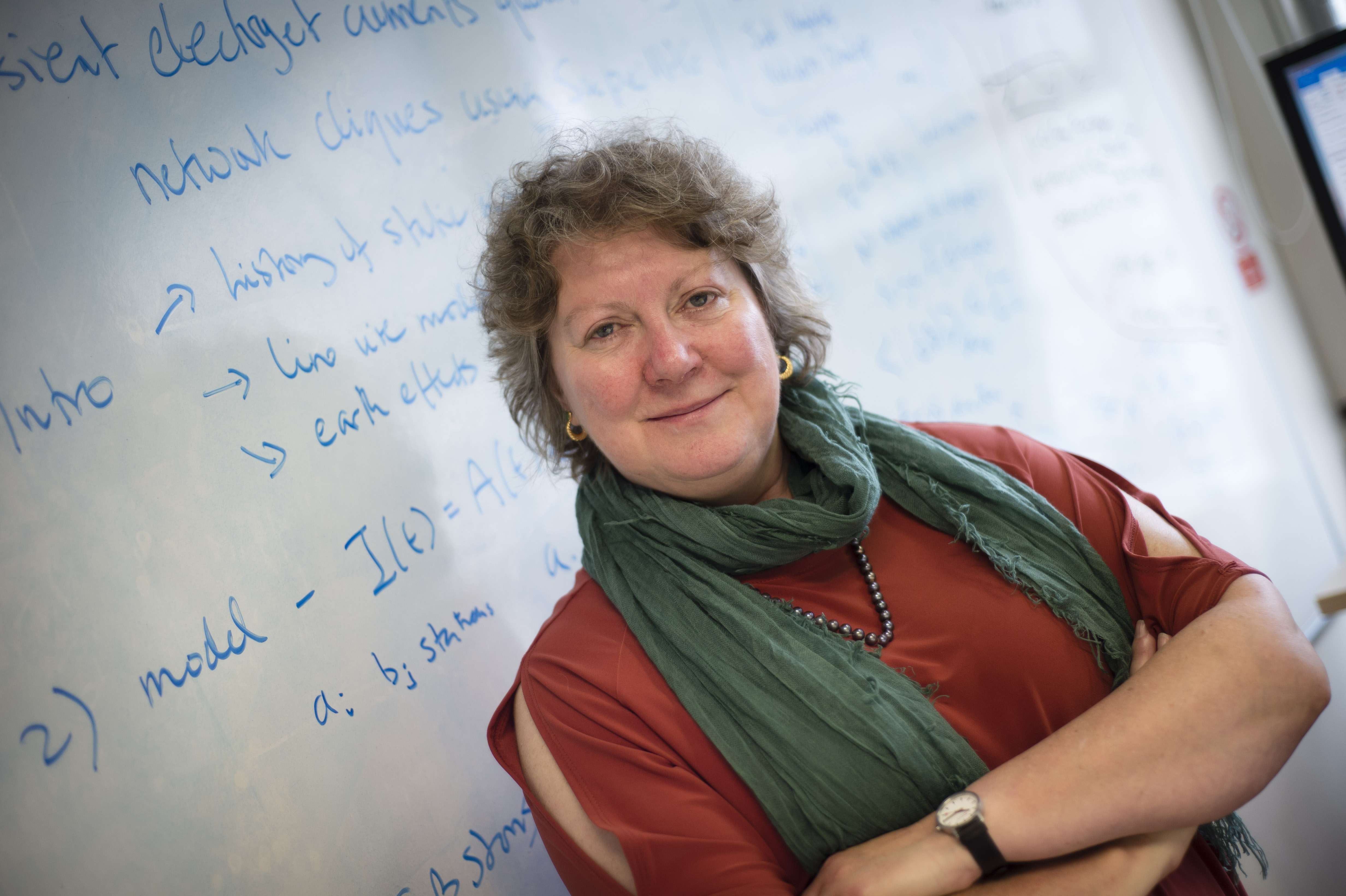The science of complexity and the art of control

Professor Sandra Chapman knows a lot about complex systems. She is a plasma physicist working in space science and laboratory systems and is Director of the Centre for Fusion, Space and Astrophysics. She has been selected as one of two 2017/18 Lloyd's of London Fulbright Scholars and this year she will be working in the USA on the impact of space weather on earth’s systems.
But before she embarks on her scholarship she will be talking as part of the Science on Screen season at the Barbican in London. She will explore the world of close-coupled and complex systems before introducing a film which illustrates her theme. But the film she has chosen is not an inaccessible scientific documentary – it’s Stanley Kubrick’s dark and satirical comedy masterpiece, Dr Strangelove.
“I chose Dr Strangelove as it is one of my favourite films,” explains Professor Chapman. “People who know it will know it’s to do with the threat of nuclear war. But that’s not the reason I chose it! It’s to do with systems that are very closely coupled. It’s this idea that we live embedded in strongly connected systems full of safeguards to make them safe. But what can happen is that one little thing goes wrong, a safeguard kicks in and actually makes things worse, tripping another safeguard after another, and how they interact has unintended consequences that ultimately lead to catastrophe.”
The Science on Screen season at the Barbican aims to explore the overlap between the worlds of science and culture. A series of films will be introduced by notable figures from scientific fields, bringing a scientific perspective to the arts and pointing out that good science requires creative thinking.
Professor Chapman, herself an artist and ceramicist, enjoys the opportunity to step out of a pure science environment and discuss ideas in a wider arena. She explains: “It’s nice as a scientist to unwind and talk a bit freely. When I’m giving science presentations everything is quite formal, everything has to be evidenced and you’re making a very clear, linearly presented set of arguments. But when you’re talking more loosely and trying to bring together wider ideas, it can sometimes be useful to relax a bit and join up concepts which come from science, the humanities and the arts, even if it is informal and imperfect. I think it’s really important to try and do this rather than sit in our little silos.”
Complexity rules
Dr Strangelove looks at the idea of trying to control a complicated situation. This theme is not only present in Professor Chapman’s research work, but an allegory for more factors in the modern world than we care to think about, she suggests.
“We love the illusion of control and the idea that we can always make it safe if we put in enough safeguards. But there is an issue with complexity. When you make a system coupled – or complex enough, with enough different parts, it behaves in ways you couldn’t have understood just from understanding all the parts on their own. That’s complexity,” says Professor Chapman.
As society becomes more advanced and the global population grows, complexity has become part of our lives and it is here to stay. Professor Chapman continues: “It used to be that these complex systems were restricted to large scale processes like chemical plants or nuclear power stations that were generally outside of our everyday experience. When these failed, people used to be tempted to say ‘let’s go back to simpler times – we can live without these things’. But of course you need them – to live in our modern world we need them. If you want power, you need power plants. And now if you want modern medicine, mobile phones, if you want any of these things, you need these complex systems. So people have these antagonistic relationships with systems which come out of fear that a big accident will happen.”
Horse meat and suitcases
It’s no secret that the big accident in Dr Strangelove is nuclear war. We haven’t got there yet, however we are seeing cases where hiccups turn into global-scale issues in many of the systems we use every day.
Professor Chapman continues: “The plot of Dr Strangelove is an extremely clear example of what I’m talking about and that is why I chose it. The world we live in has become very closely coupled and we are not separate from it. We don’t live over here and the power plant is over there. It’s in everything – it’s your mobile phone.
“A couple of years ago there was the horse meat scare. All across Europe there was suddenly horse in everything. I started calling this syndrome ‘horse’. Despite there being safeguards – each piece of beef had been tracked, there was paperwork, and paperwork on that paperwork, there were checks and systems and everyone was doing their job – somehow this horse got in. It was chopped in with the beef and suddenly it was in a lasagne four countries away. It was everywhere. So the idea that having the paperwork so you could check 100% was suddenly out the window, because it had already failed.
“Another recent example was an airline computer system falling over. That didn’t affect just one airport, it was everywhere and people were heaping up in airports across the world. The days of the paper ticket and checking in at the airport are gone. Now you book online, there are loads of different options – do you want economy, do you want to check in your bag, do you want a special meal? You check in online and of course they over-book like crazy. So not only have you got a very complicated system but you also then stress the system. We want to maximise our profit – this is how we run these systems.
“So in the end there is a combination of complexity, close coupling, and pushing the margins and eventually there is a failure and it is a catastrophic one. Not simply one bag lost – everyone loses their flight. And all our systems are like this now – and I find that quite alarming!”
Perfectly flawed
So can we ever build the perfectly safe system? According to Professor Chapman, it is tricky.
She explains: “That is the big question because currently we don’t know how to do it. I’m not saying it’s not possible – we just don’t know how to do it.
“We are capitalists and our systems are run to keep costs down, and everything is driven to this state of almost falling over. Even if you introduce more resilience, a system will be driven again to this unstable state. It’s almost an existential thing – it’s not about the details, we can’t say ‘oh if only we were more clever we could fix the system’, it’s us – we actually design the system to be this way. There is no slack, because slack costs you money.
“I don’t think it’s possible to go back to a simpler, decoupled world either. There are too many of us and we are used to a nice comfortable lifestyle. We just can’t do it the way we used to.”
Published
8 September 2017

Sandra Chapman is primarily but not exclusively a plasma physicist working on problems in astrophysics and in the laboratory. She is currently Professor of Physics and Director of the Centre for Fusion, Space and Astrophysics at the University of Warwick. She is a 2017/18 Lloyds of London Fulbright Scholar.
Images
Dr Strangelove image courtesy of The Barbican.
Terms for republishing
The text in this article is licensed under a Creative Commons Attribution 4.0 International License (CC BY 4.0).
Share

